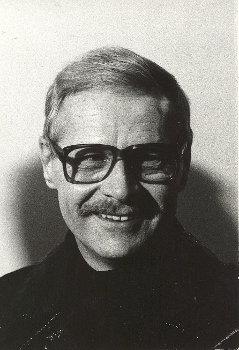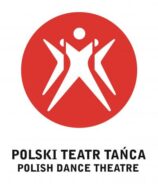Conrad Drzewiecki an outstanding dancer and choreographer, teacher, founder of the Polish Dance Theatre (PTT) Poznań Ballet. He was born on 14 October 1926 in Poznań. A winner of many foreign awards including Silver Medal at the International Dance Competition in Bucharest (with Teresa Kujawa 1953), Gold Medal at the International Dance Competition in Warsaw (1955), Primo Premio Assoluto at the International Ballet Competition in Vercelli (1956) and Prix Italia for the film Gry as well as Polish awards: Terpsychora for lifetime achievement and Golden Medal Gloria Artis.
From 1951 Drzewiecki was a ballet soloist of the Opera in Poznań, and in 1956 he moved to the Western Europe. His next stops were Naples and Paris. He cooperated with the best French groups, travelling with them all over the world. He danced in choreographies of Fokin, Balanchine, Limon, Lifar and Roland Petit. He studied classical, folk and contemporary dance without a break.
He returned to Poland in 1963 where he became ballet director of the Opera in Poznań managed by Robert Satanowski. His choreographies of the time went down in history: The Firebird by Stravinsky (1967), The Adagio for violin and strings (1967), Pavane for a Dead Princess (1968) and The Miraculous Mandarin (1970) by Béla Bartók.
He introduced already while working for the Opera in Poznań elements of modern dance to his works, as in Rhapsody in Blue. As a teacher at the Secondary Ballet School in Poznań he became the pioneer teacher of modern dance techniques. In 19711980 he was its artistic director.
In 1973 he became director of the Polish Dance Theatre Poznań Ballet, a new group created within the Opera in Poznań. At the same time eight performances from a former repertoire of the Opera in Poznań were added to the repertoire of the Polish Dance Theatre. He made from the Polish Dance Theatre an individual company; he created his own inimitable style combing modern dance technique with classical and folk inspirations. The first performance created for this new institution was Epitafium dla Juana with music by Edward Rudnik.
Conrad Drzewiecki often used Polish contemporary music. He created performances with music by Mieczysław Karłowicz Odwieczne pieśni (1973), Wojciech Kilar Krzesany (1977), Karol Szymanowski Song of the Night (1977) or Krzysztof Penderecki Stabat mater (1976). He also created performances with music of Chopin, Beethoven and Schubert. In the eighties he sometimes used light music: The Beatles (Yesterday, 1982), or music by a Polish multi-instrumentalist and rock musician Józef Skrzek. Interestingly, Drzewiecki prepared stage design for many of his performances.
The first director of the Polish Dance Theatre often co-operated with tv. A television version of Krzesany was created in 1979 and in 1978 Pavane for a Dead Princess. Pieśni (1976) and two performances created during his work at the Grand Theatre in Poznań Gry (1970) and Adagio (1969) were also recorded.
The group went on tours throughout Europe and was invited to such international festivals as: International Dance Festival in Paris and Chateauvallon, Baletto Oggi in Bari, Musica Sacra in Milan, Intercontri Musicali Romani, Bregener Festspiele and Berliner Festtage.
Drzewiecki received many awards as the director of PTT: Certificate of the Ministry of Foreign Affairs; 1st Level National Prize for Promotion of Polish Culture Abroad; ITI Certificate for Promotion of Polish Art Abroad; Award of the City of Poznań for Outstanding Achievements in Culture and Arts; the title For Merit to Polish Culture and others.
He retired in 1987 after fourteen years of fruitful and intense work as the director. His assistant took over as acting director and one year later Ewa Wycichowska became director of PTT. Drzewiecki created his last performances for the Polish Dance Theatre Pieśń Roksany and Śmierć Izoldy ten years later in 1998 on the 25th Anniversary of the Theatre.
Conrad Drzewiecki died on 25 August 2007. One street in Poznań was named after him.

